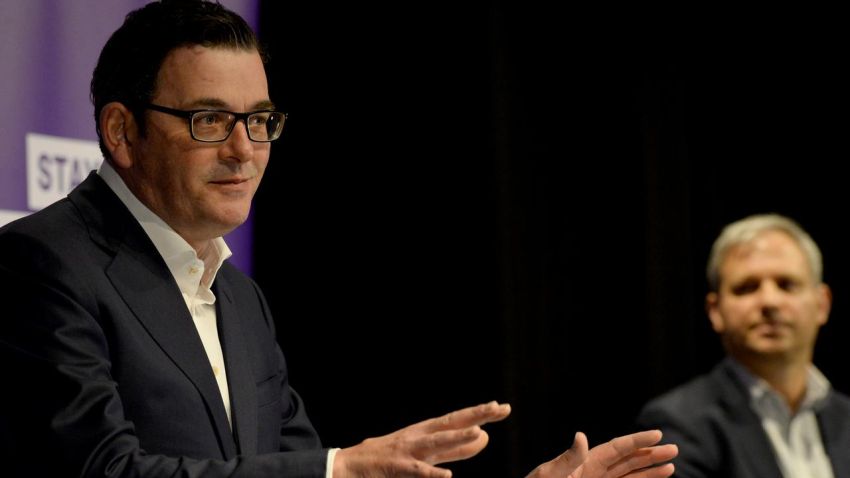
Controversy has surrounded the Public Health and Wellbeing Amendment (Pandemic Management) Bill 2021 since its introduction to Victorian Parliament in October, right through to its final approval by parliament on December 2.
Aside from criticism from the Liberals and civil society organisations, it has also been the target of rallies largely organised by anti-vaccination groups that have attracted thousands of participants.
But what does the bill contain — and how should progressives respond to it?
More accountability
According to its Explanatory Memorandum, the Pandemic Management Bill seeks to “establish a contemporary, fit-for-purpose regulatory framework to enable the effective management of pandemics, including the current COVID-19 pandemic.”
It represents a move away from the previous general legislative scheme enforced through the Public Health and Wellbeing Act 2008 (PHWA). Up to now, Victoria’s COVID-19 public health measures — including lockdowns, quarantining and mask mandates — have been given legal effect via the emergency powers provisions of the PHWA.
Under the existing PHWA, a health minister is able to declare a state of emergency. This activates various “emergency powers” under section 200(1), with the Chief Health Officer (CHO) able to make orders “reasonably necessary to protect public health”.
The bill amends the PHWA and provides a pandemic-specific approach to these emergency powers. It means a “pandemic declaration” has to be made by the premier, on advice of the CHO. The resultant “pandemic orders” — equivalent to current CHO orders — would be enacted by the minister, rather than the CHO.
These provisions of the bill should be welcomed.
Use of emergency powers becomes problematic when its deployment is arbitrary, overly broad and with minimal accountability. By setting a pandemic-specific setting within which these powers are exercised, the scope is limited.
Entrusting ultimate power to issue pandemic orders to the minister, rather than the CHO, should also be supported. While somewhat symbolic, it affirms the principles of representative government.
A minister possesses a degree of democratic legitimacy through the government, which is accountable to and formed within an elected parliament. While the CHO possesses expertise on health policy — and would continue to advise the implementation of pandemic orders under the bill’s provisions — it is more democratic for highly-consequential uses of extraordinary powers to be wielded by an elected political representative rather than a government-appointed bureaucrat.
Politically and logistically, it would likely see a reorientation of pandemic orders in a more balanced public policy manner. Criticism of the existing PHWA regime often centred on the ostensibly one-dimensional focus of the CHO in making orders, reflected through decisions such as to close playgrounds or ban alcohol at picnics.
Giving powers to the minister may see broader stakeholders consulted and sends a signal that pandemic orders are political, rather than bureaucratic, decisions.
Further strengths of the bill, obtained as a result of negotiations with crossbenchers to secure its passage in the upper house, include provisions that make fines more financially-progressive, improved transparency of health advice and alignment of pandemic orders with Victoria’s Charter of Human Rights and Responsibilities.
The NSW Council for Civil Liberties described the proposed legislation as a “marked improvement on [the] currently operating [scheme]”. Human rights lawyer Hugh de Kretserhas said that while the bill is “not perfect”, it would improve transparency and accountability, a sentiment echoed by the Human Rights Law Centre.
Lack of scrutiny
While much criticism of the bill is misguided and ill-informed, this does not render it faultless.
The bill has several weaknesses when it comes to scrutiny of pandemic orders. It contains limitations on the ability of parliament to interact with the orders.
Rather than a parliamentary committee being responsible for scrutinising pandemic orders, the bill establishes an Independent Pandemic Management Advisory Committee (IPMAC). IPMAC will not be comprised of elected representatives; instead it will involve hand-picked experts in public health, law, and human rights, among others.
Writing in The Conversation, Melbourne Law School’s William Partlett said “the use of an appointed committee to oversee these powers is a problematic departure from the usual role of parliamentary committees in the scrutiny of executive governance”.
While the creation of a “specialised committee … is a good idea ... it should not replace oversight by a dedicated cross-party parliamentary committee”.
This is more troubling when considering that the bill allows the minister to reimpose pandemic orders, even when disallowed (essentially overturned) by parliament. While the bill’s sidelining of the CHO in favour of more accountable representatives is a positive step, ministerial exercise of power is nevertheless less favourable to parliamentary intervention.
While concern may exist that entrusting MPs with power over public health measure decisions would politicise them, the reality is that such decisions are inherently political, with greater democratic involvement and accountability being favourable.
Victoria’s Ombudsman has also expressed concern about the enforcement of detention orders, reflecting that criticism of the bill is not confined to right-wing elements.
Heavy-handed use of pandemic restrictions in the past two years, including the police-driven response adopted by state governments, has created understandable fears of government overreach.
Despite its passage, it is not yet clear that opposition to the bill will subside.